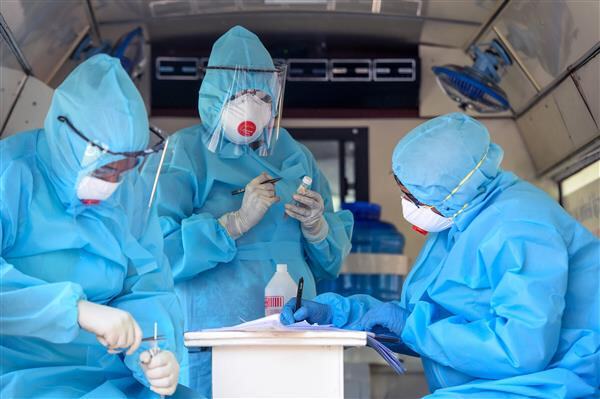Three more re-infection cases, now at Columbia Asia Hospital

New Delhi: Three new COVID-19 re-infection cases have emerged in the National Capital Region, Columbia Asia Hospital reported on Tuesday. This comes only a day after Sir Ganga Ram Hospital had reported two re-infection cases. However, these cases have raised new questions and concerns among the medical community.
Dr Piyush Goel, Senior Consultant — Pulmonary and Critical Care at Columbia Asia Hospital in Gurgaon's Palam Vihar said "we have seen three cases of COVID-19 re-infection in the last three months. Those recovering from COVID-19 have lower immunity and are susceptible to other infection-causing viruses and bacteria as well. We also do not know how long COVID-19 antibodies last in the body". He also said that antibody testing is not commonly done in India, due to which many false-positive cases go undetected.
One of these three patients was completely asymptomatic when they had initially tested positive for COVID-19. A few months ago, they reported signs of distress and once again tested positive for the virus, but this time presented all symptoms for the disease.
Another patient, who showed all signs of COVID-19 when they initially tested positive, said that they were experiencing COVID-like symptoms once again but in fact, tested negative the second time. However, after observation, doctors decided to treat him for COVID-19 because all his tests clearly ruled out any other flu-related infections.
These patients have now made a full recovery, albeit with much weakened immune systems. In both these cases, no antibodies test or gene-sequencing was done. RT-PCR tests, considered the most accurate as of now, were conducted.
Dr Shuchin Bajaj, Internal Medicine Specialist and Director at Ujala Cygnus Hospital warned that the RT-PCR tests, although quite accurate, still leave some margin for error given the prevalence of COVID-19 and the sensitivity and specificity of the test. This leads to a large number of false-negatives and false-positives. This, in turn, leads to further confusion due to a lack of antibody testing, gene-sequencing, and a complete dearth of data across medical institutions in India.
"While re-infection is very rare for COVID-19, it is still possible. But, it should ideally be investigated via gene-sequencing, as has been done in the western world, most recently in Hong Kong", Dr Bajaj said. "Since the pandemic started, the caseload is so high that doctors simply do not have the time to do research or gene-sequencing as it should be done. The high cost is another limiting factor," Dr Goel added.
Dr Rajan Sharma, National President, IMA said, "No authentic data is available on this. When the government does not have data on how many doctors have died working on the frontlines during the pandemic, how can one expect them to produce data on re-infection cases?" Dr Keshave, a resident doctor at the Lok Nayak Jai Prakash Narayan Hospital added that while very few re-infection cases have come up, no centralised or uniform database is available for the same.



